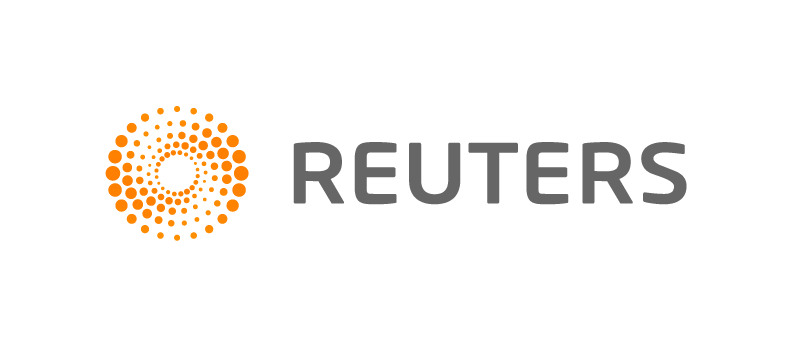Port Bans Choke Qatar's Commodity Trade As Gas Supply Worries Grow

SINGAPORE/LONDON, June 6 (Reuters) - A campaign by leading Arab powers to isolate Qatar is disrupting trade in commodities from crude oil to metals and food, and deepening fears of a possible jolt to the global gas market, where the tiny Gulf state is a major player.
Just a day after Saudi Arabia and its Arab allies severed transport links with Qatar over a diplomatic row, bans on Doha's fleet using regional ports and anchorages threatened to halt some of its exports and disrupt those of liquefied natural gas (LNG).
Traders worried that Riyadh's allies would refuse to accept LNG shipments from the Gulf state, and that Egypt might even bar tankers carrying Qatari cargoes from using the Suez Canal as they head to Europe and beyond - although Cairo is bound by an international agreement to let them use the waterway.
Saudi Arabia, Egypt, the United Arab Emirates (UAE) and Bahrain severed relations with Qatar and closed their airspace to commercial flights on Monday, in the worst split between powerful Arab states in decades.
U.S. President Donald Trump joined in the dispute on Tuesday, saying leaders he met on a Middle East trip had warned him that Doha was funding "radical ideology". Qatar vehemently denies the accusations made against it.
Qatar is now unable to load crude oil onto supertankers together with other Gulf-based grades, and price agency S&P Global Platts said it would not automatically include the country in its Middle East price benchmark.
The agency noted that tankers usually combine Qatari shipments with crude from Kuwait, Saudi Arabia, the UAE and Oman before heading from the Gulf. "Restrictions on vessels calling into Qatar and associated uncertainty could impact the inherent value of crude loading from Qatar," it said.
More worryingly, food imports are affected as Saudi Arabia closed its land border with Qatar, stranding thousands of trucks carrying supplies. Sources said the UAE and Saudi Arabia have already cut exports of white sugar to Qatar. Consumption is traditionally higher during the Muslim holy month of Ramadan, which is currently being observed.
Qatar, which largely depends on food imports for its population of 2.5 million, has assured residents it has taken measures to assure that normal life continues.
However, Maersk, the world's biggest container shipping line, said it can no longer transport goods in or out of Qatar.
Containers carrying food and other consumer goods are usually shipped to Qatar via the UAE port of Jebel Ali. A Maersk Line spokesman said: "We have confirmation that we will not be able to move Qatar cargo in and out of Jebel Ali."
Shoppers packed stores in Doha on Monday to stock up. On Tuesday, fresh poultry and some types of milk were in short supply at two supermarkets visited by a Reuters reporter. However, plenty of fruit and vegetables remained on the shelves.
Exclusion Zones
With exclusion zones sweeping into effect, vessels from Qatar are no longer able to dock in the UAE or Saudi Arabia as planned. According to shipping data on Thomson Reuters Eikon, around half a dozen oil, chemical and LNG tankers have had to leave UAE waters or have halted in the open ocean.
Bans on Qatar-linked oil and LNG vessels refuelling at the UAE's port of Fujairah have added to chaos, pushing shippers to find new refuelling points at extra cost, industry sources said.
12
View Full Article
WHAT DO YOU THINK?
Generated by readers, the comments included herein do not reflect the views and opinions of Rigzone. All comments are subject to editorial review. Off-topic, inappropriate or insulting comments will be removed.
- Weatherford CEO's Rebound Plan Relies On Getting Smaller
- Iran Says Oil Market Is Too Tight For US Zero Exports Target
- China's Squeezed 'Teapots' Eye Petchem Path To Riches
- Baker Hughes: US Drillers Add Oil Rigs For Second Week In Three
- Venezuela Hands China More Oil Presence, But No Mention Of New Funds
- An Already Bad Situation in the Red Sea Just Got Worse
- USA Regional Banks Dramatically Step Up Loans to Oil and Gas
- Oil Markets Were Already Positioned for Iran Attack
- Valeura Makes Three Oil Discoveries Offshore Thailand
- North America Breaks Rig Loss Streak
- EU Offers $900MM in Funding for Energy Infrastructure Projects
- Germany to Provide $2.3B Aid for Decarbonization of Industrial Sectors
- Mexico Presidential Frontrunner Plans to Spend Billions on RE, Gas Power
- Chile's ENAP Says Working on Decarbonization Plan
- House Votes to Sanction China's Purchase of Iranian Oil
- Macquarie Strategists Warn of Large Oil Price Correction
- JPMorgan CEO Says LNG Projects Delayed Mainly for Political Reasons
- USA, Venezuela Secretly Meet in Mexico as Oil Sanctions Deadline Nears
- EIA Ups Brent Oil Price Forecast for 2024 and 2025
- Petrobras Discovers Oil in Potiguar Basin
- EIR Says Oil Demand Will Not Peak Before 2030
- Biden Plans Sweeping Effort to Block Arctic Oil Drilling
- Pantheon Upgrades Kodiak Estimates to 1.2 Billion Barrels
- Dryad Flags Red Sea 'Electronic Warfare' Alert
- USA Crude Oil Stocks Rise Almost 6MM Barrels WoW
- Oil and Gas Executives Predict WTI Oil Price
- New China Climate Chief Says Fossil Fuels Must Keep a Role
- Chinese Mega Company Makes Another Major Oilfield Discovery
- Oil and Gas Execs Reveal Where They See Henry Hub Price Heading
- Equinor Makes Discovery in North Sea
- ExxonMobil Racks Up Discoveries in Guyana Block Eyed by Chevron
- Macquarie Strategists Warn of Large Oil Price Correction
- DOI Announces Proposal for Second GOM Offshore Wind Auction
- Standard Chartered Reiterates $94 Brent Call
- Chevron, Hess Confident Embattled Merger Will Close Mid-2024


